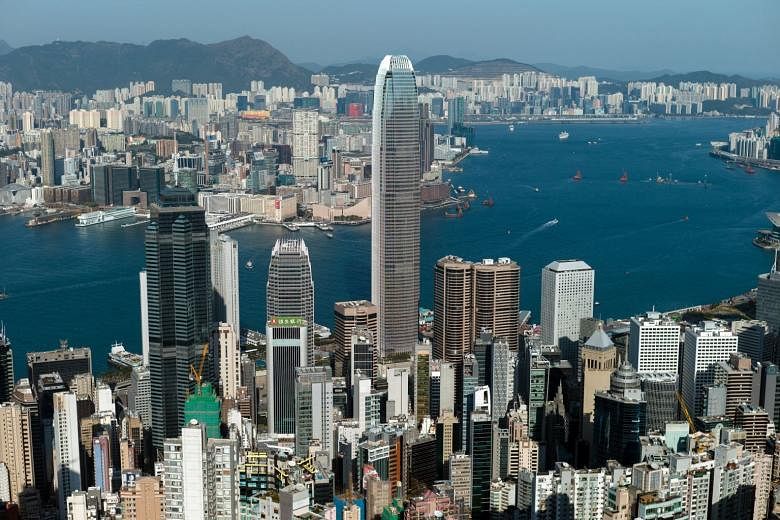After a strong performance in 2017, the Hong Kong economy is projected to ease up in 2018, led by slower consumption growth as the housing market softens, higher interest rates and a rise in external uncertainties.
Most analysts The Straits Times contacted estimated that Hong Kong's gross domestic product (GDP) growth was between 3.5 and 3.7 per cent in 2017.
It clocked growth of 3.9 per cent year on year in the first nine months, said BMI Research.
Hong Kong has yet to release a growth forecast for 2018 but the city's Chief Executive, Ms Carrie Lam, said in November that 2017's growth would exceed 3.5 per cent.
Still, most analysts think the bullish trend is not likely to continue in 2018 with most lowering their projections to between 2.7 and 3 per cent on the back of a higher base in 2017.
Ms Iris Pang, Greater China economist at ING Bank, is the most optimistic, tipping an expansion of 3.5 per cent.
Her bullish outlook is supported by rising property prices, an expected rise in interest rates and the growing wealth effect that is driven by higher asset prices.
Mr Kelvin Lam, HSBC's Greater China economist, said Hong Kong has seen stronger-than-expected growth since the start of 2017, led mainly by private consumption and, to a lesser extent, investment.
"This has happened on the back of stronger domestic demand, spurred by a tight labour market and rising asset prices, which had in turn boosted real earnings and consumer confidence... A recovery of inbound tourism has also raised consumption of goods and services," said Mr Lam.
But he warned that because of the linked exchange rate system, "normalisation of United States monetary policy may eventually raise mortgage rates in Hong Kong, slowing consumer spending and property demand".
That said, if housing supply remains tight, "meaningful price adjustment is unlikely", Mr Lam added.
Nomura expects consumption growth to slow on the back of a mild 10 per cent housing market correction as a tight labour market would partly offset higher local interest rates.
"Solid external demand (tourism from China and import demand from developed economies) should continue to spill over to the local economy, including domestic retail sales and services linked to trade (which combined, account for 22 per cent of the GDP)," it added.
BMI Research said the cooling housing market and slowing trade led by reduced economic activity in China will weigh on Hong Kong's growth, but the gradual comeback in the retail sector will provide some support.


